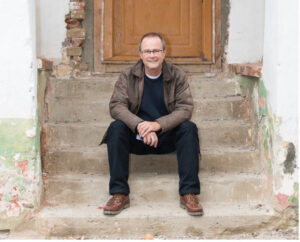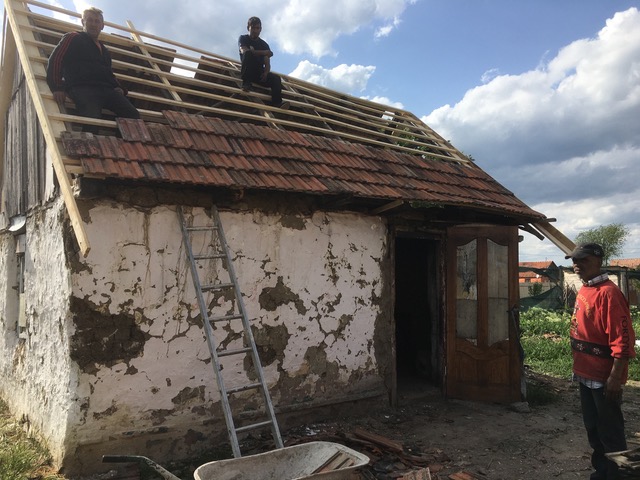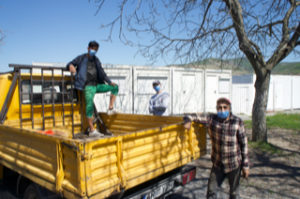
I Corona-krisens kölvatten
Dramatisk rapport i Corona-krisens kölvatten
Vi har fått en rapport från Lee Saville, Networks som är Missionskyrkans samarbetspartner i Rumänien. Förhållanden har förändrats på ett dramatiskt sätt under Corona-krisen och det drabbar de fattigaste allra mest. Även om vi själva upplever situationen som svår och osäker här hemma får vi inte glömma våra vänner i Rumänien, som behöver vårt direkta stöd till mat och mediciner. Du kan vara med och stödja genom ett bidrag via Missionskyrkan till:
Swish nr 123 68 055 19 Märk: Ge Ett Frö.
Här är några utdrag ur Lees rapport som kan läsas i sin helhet (engelsk text) längre ned på sidan.
Kära vänner,
Rumänien stängde sina skolor relativt tidigt (11 mars) och på inrådan av de lokala myndigheterna stängde vi våra barnprogram. En vecka senare utlystes ett undantagstillstånd av regeringen och vi uppmuntrades att stänga våra sociala program bland de mycket utsatta för att inte oavsiktligt skapa en infektionspunkt som snabbt kan ödelägga ett fattigt samhälle.
Vi får höra att tvätta händerna är det bästa försvaret mot viruset, men vad gör människor utan tillgång till färskvatten?
Den rumänska regeringen införde stränga restriktioner för rörlighet och uppmanade till ett socialt avståndstagande. Men för romerna (ett sällskapligt folk som lever i överfulla förhållanden i släktgrupper) är detta nästan omöjligt. För att gå till butikerna eller apoteket (tillåtet enligt reglerna) måste du fylla i ett papper och ha det med dig när du reser. Men folk vet inte var man kan få tag i den officiella blanketten och om de får det, kan de inte läsa eller skriva ….…..Allt de vet är att polisen och armén upprätthåller restriktionerna och detta för med sig rädsla.
Dålig kost under många år innebär att människors immunförsvar är svagt. Många har långvariga sjukdomar som har förvärrats med tiden eftersom de har lämnats obehandlade på grund av att de inte har haft råd med att bekosta mediciner.
Under de senaste veckorna har människor som rest ut till Italien och Spanien kommit tillbaka och det är tänkt att de ska självisolera sig men detta har varit svårt för vissa av dem. Vi vet att om viruset kommer in i av våra samhällen kommer det att spridas mycket snabbt.
Ett omedelbart och synligt problem som växer fram snabbt är hunger. Många överlever genom att göra informellt dagarbete för andra. Ofta i trädgårdar eller i byggbranschen men just nu som en av mina grannar sa till mig ”vi är rädda för varandra och ingen kommer att släppa in dig i sina hem”.
Utan besparingar att falla tillbaka på, när deras barn blir hungriga, vad ska de göra?
Lyckligtvis är vi mitt i våren och så det värsta av det kalla vädret är nu bakom oss. Vi arbetar nu på en plan för livsmedelssäkerhet, som också omfattar dem med trädgårdar i Șiria som odlar grönsaker.
Men på kort sikt innebär det att vi måste skapa lösningar för att få fram mat till över 1000 utsatta människor. Vi vill tacka er för ert fortsatta stöd och böner.
Lee
för NetWorks team.
-.-.-.-
Dear Friends,
Romania closed their schools relatively early (11th of March) and on the advice of the local authorities we closed our children’s programs.
A week later a state of emergency was declared by the Government and we were encouraged to close our social programs amongst the very vulnerable in order not to inadvertently create a point of infection that could quickly devastate a poor community.
When Romania and other European countries began talking about closing borders we encouraged the international volunteers who wanted to go back to their home countries, to do so before borders closed completely and many have done so.
So the few of us left on the ground are now working from home wherever possible.
We see and hear the struggles daily as people try to understand what is being communicated on TV and then try to apply it in their own context.
We are being told that to wash hands is the best defence against the virus, but what do people do without access to fresh water?
The Romanian Government introduced tight restrictions on movement as well as the usual social distancing rules. But for the Roma (a sociable people living in overcrowded conditions in extended family groups) this is almost impossible. To go to the shops or the pharmacy (allowed under the rules) you need to fill in a piece of paper and have it with you as you travel. But people don’t know where to get the official form from and if they do get it, then they can’t read or write…
All they know is that the police and the army are enforcing this and this brings with it fear. (The news reported that on the first day of these new rules, the authorities gave out fines amounting to €1,540,000) Poor nutrition over many years means that their immune systems are weak. Many people have long standing illnesses that have become compounded over time because they have been left untreated because of the expense of medication.
When you are poor then the list of vulnerabilities goes on and on. The Council of Europe web site said on the 7th April 2020 “Roma people living in substandard housing and in segregated settlements across Europe are among the groups most vulnerable to the current COVID-19 pandemic.”
Over the last couple of weeks people who travelled out of these communities to places like Italy and Spain have been coming home and are supposed to self isolate but this has been hard for some of them.
We know that if the virus gets into one of our communities then it will spread very fast.
An immediate and visible problem that is emerging fast is hunger.
Many survive by doing informal day work for others. Often in gardens or in construction but right now as one of my neighbours said to me “we are afraid of one another and no one will let you in their homes”. This is probably good social distancing at work, but it inadvertently leaves those day workers and their families without any income. With no savings to fall back on, when their children get hungry, what are they to do?
Fortunately we are in the middle of spring and so the worst of the cold weather is now behind us.
We are now working on a Food Security plan, which also includes those with gardens in Șiria planting vegetables, but in the short term it means us setting up systems to provide food for over 1000 vulnerable people.
We want to thank you for your continuing support and prayers.
Lee
On behalf of the NetWorks team.

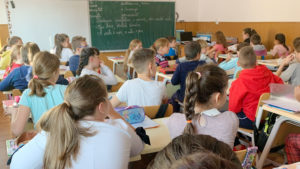
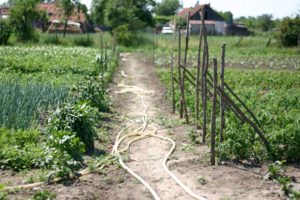
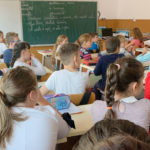 Föregående inlägg
Föregående inlägg Nästa inlägg
Nästa inlägg